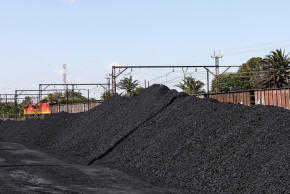|
The
United States, Britain, France, Germany and the European Union
pledged the funding during the COP26 climate conference in
Glasgow, Scotland, last November. South Africa is the world's
12th biggest emitter of climate-warming gases and a major coal
producer and user.
Pressed by lawmakers over delays in obtaining the funding during
a virtual parliamentary briefing, Creecy said South Africa,
which has set up a task team to advise President Cyril Ramaphosa
and his cabinet on the offer, was still looking at the terms.
"I think that the issue of speed is important, but the issue of
the nuances and the quality of the decision is also important,"
Creecy said.
"I am not negative about the opportunities that this money
presents, but I am realistic that we have to look at it properly
and we shouldn't rush when looking at it properly. There is a
lot of scepticism out there that it's only loan financing, that
it's going to worsen our sovereign debt situation."
South Africa's chief negotiator at COP26, Maesela Kekana, told
the same briefing that negotiations were still being held with
the Western nations.
Creecy said South Africa was also considering the impact of the
shift from coal on unemployment and poverty.
About 93,000 people were employed in South Africa's coal mines
in 2021, according to industry body the Minerals Council.
"We've got to ensure that by introducing green technology into
the economy, we're not just changing technology, we're also
dealing with some of the abiding constraints of inequality,
unemployment and poverty that confront our economy," Creecy
said.
(Reporting by Nelson BanyaEditing by Alexander Winning, William
Maclean)
[© 2022 Thomson Reuters. All rights
reserved.]
This material may not be published,
broadcast, rewritten or redistributed.
Thompson Reuters is solely responsible for this content.

|
|





